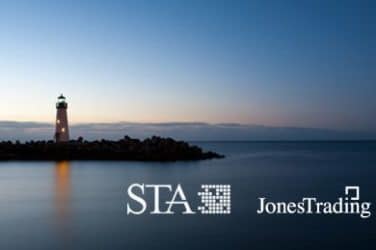
Authors of FinReg urge regulators to consider extraterritorial impact of rules.
The authors of the Dodd-Frank Act are concerned that U.S. regulators may be out of whack with their counterparts aboard, which could lead to regulatory arbitrage and put a stranglehold on U.S. capital markets.
Given the global nature of this market, U.S. regulators should avoid creating opportunities for international regulatory arbitrage that could increase systemic risk and reduce the competitiveness of U.S. firms abroad, according to a letter sent by Congressman Barney Frank and Senator Tim Johnson to the heads of the SEC, CFTC, FDIC, and Federal Reserve.
Under the Dodd-Frank Act, the Securities and Exchange Commission and the Commodity Futures Trading Commission are required to jointly study and report to Congress on swap regulation and clearinghouse regulation in the United States, Europe, and Asia, and to identify areas of regulation that need to be harmonized.
“While the U.S. and Europe have a lot of similarities as far as the framework of their regulation–centralized clearing, public reporting, etc.–a truly common set of regulations is a long way off,” Mike Wilkins, product specialist at SunGard Global Trading, told Markets Media.
“There are multiple parties involved and many diffused interests such that while it’s a noble concept, common regulations will probably never come to fruition,” he said.
A major part of the SEC-CFTC study, which by law must be produced no later than March 2012, will be devoted to a comparison of the different regulatory regimes.
The questions being posed by the SEC and CFTC frame the differences across national boundaries, and seek to ascertain whether such differences should be harmonized.
The report must identify major dealers, exchanges, clearinghouses, clearing members, and regulators in each geographic area and describe the major contracts (including trading volumes, clearing volumes, and notional values), methods for clearing swaps, and systems used for setting margins.
Congress generally limited the territorial scope of Title VII (the section of Dodd-Frank dealing with derivatives) to activities within the United States.
“This general rule should not be swallowed by the law’s exceptions, which call for extraterritorial application only when particular international activities of U.S. firms have a direct and significant connection on U.S. commerce,” the letter said.
U.S. regulators seek to establish consistency with international swaps regulations, large banks are urging them to limit the extraterritorial reach of rules created under the Dodd-Frank Act.
A group of money center banks, all of them major swaps dealers, have outlined recommendations to the SEC and CFTC on international issues related to Title VII of Dodd-Frank.
The banks are recommending that the SEC and CFTC take into account the fact that non-U.S. firms have conducted swap activities with U.S. persons, and vice versa, for many years, including through non-U.S. branches and affiliates, that many non-U.S. jurisdictions already regulate swaps dealers, including non-U.S. branches and affiliates of U.S. and non-U.S. firms, and the G-20 jurisdictions are working to supplement their existing regulatory regimes to incorporate derivatives-related clearing and market transparency reforms to achieve regulatory objectives similar to those of Dodd-Frank.
A non-U.S. person should not be deemed a U.S. swap dealer solely as a result of executing swaps with U.S.-registered swaps dealers, the banks said.
Exposures arising from swaps between non-U.S. persons should not be taken into account for the purpose of determining whether that person is a major swap participant (MSP), regardless of where or how those swaps are executed or whether they involve U.S. underlies, since the manner of execution or undelier for a swap is irrelevant to whether the swap poses a risk to U.S. counterparties.
Dodd-Frank’s clearing and trading requirements should apply to any swap designated for mandatory clearing by the relevant Commissions if that swap has at least one U.S. person as a counterparty, and reporting requirements should apply to any transaction that has at least one U.S. counterparty, the banks said.





